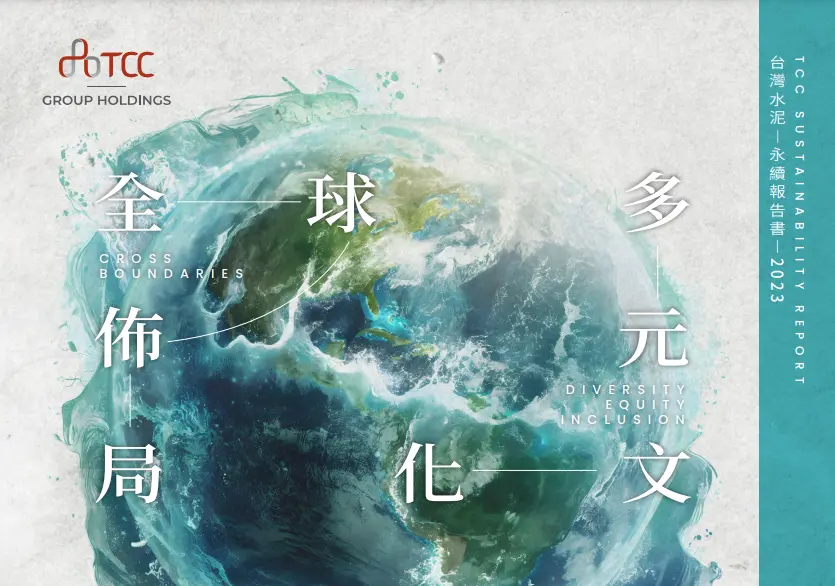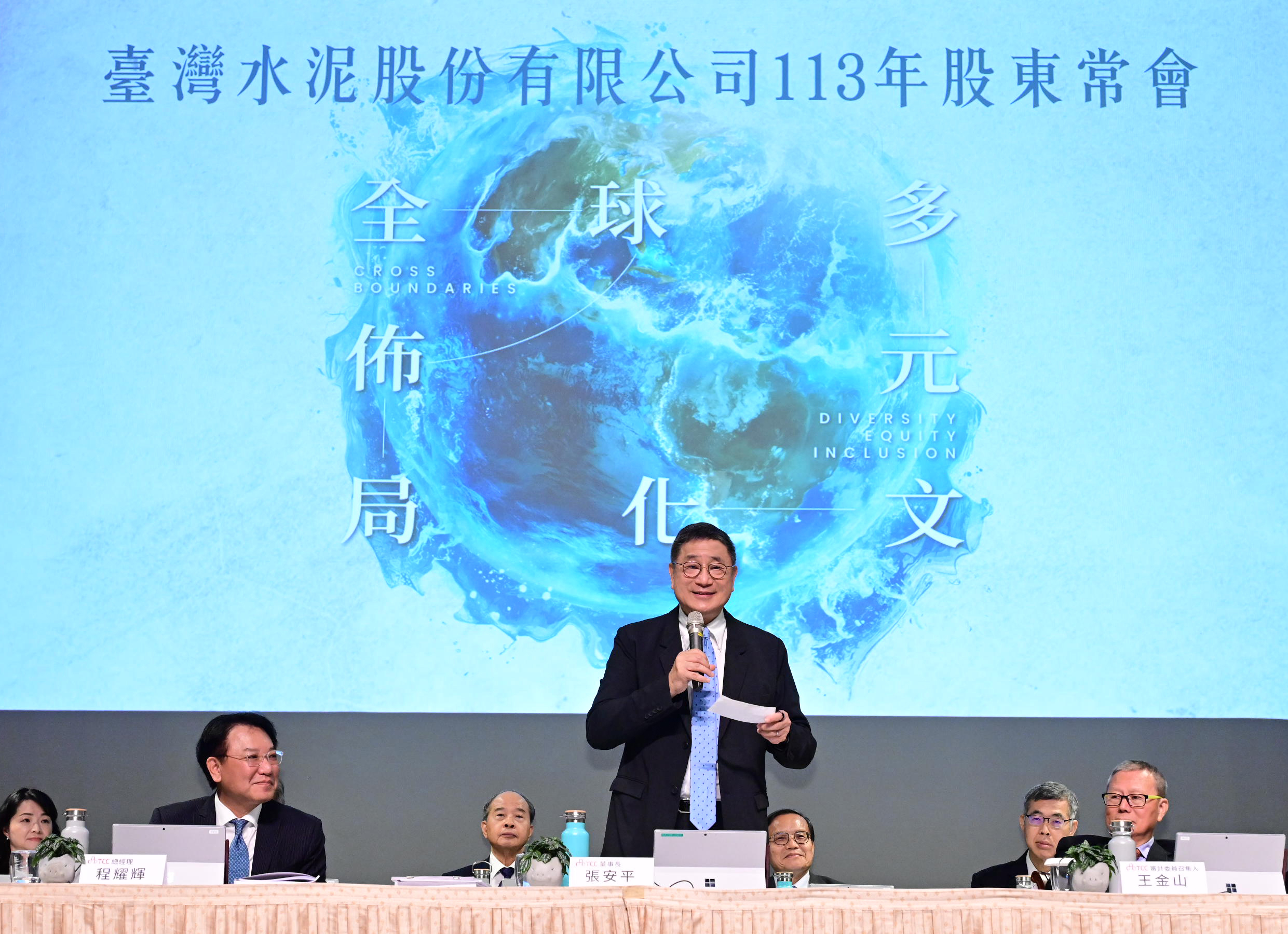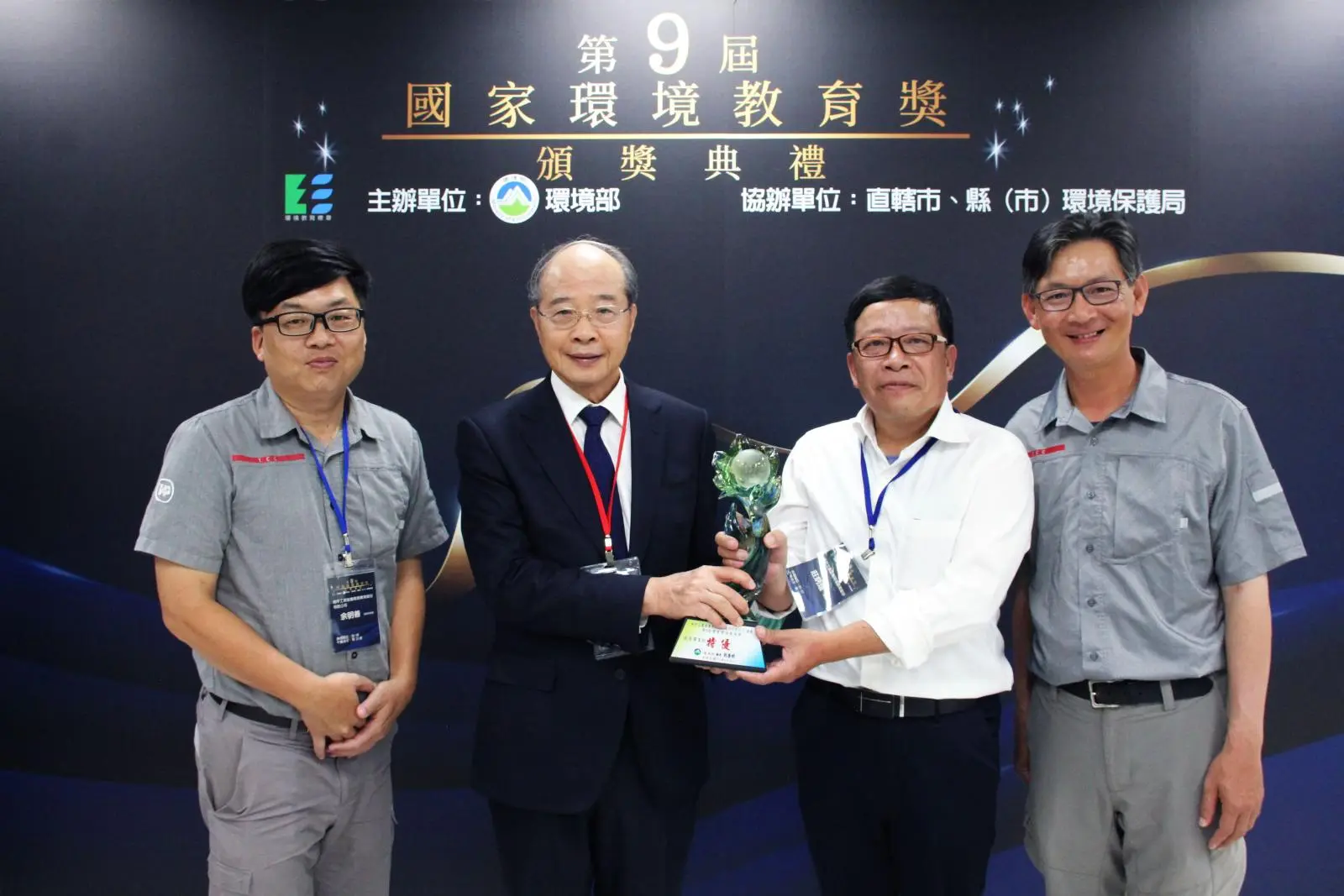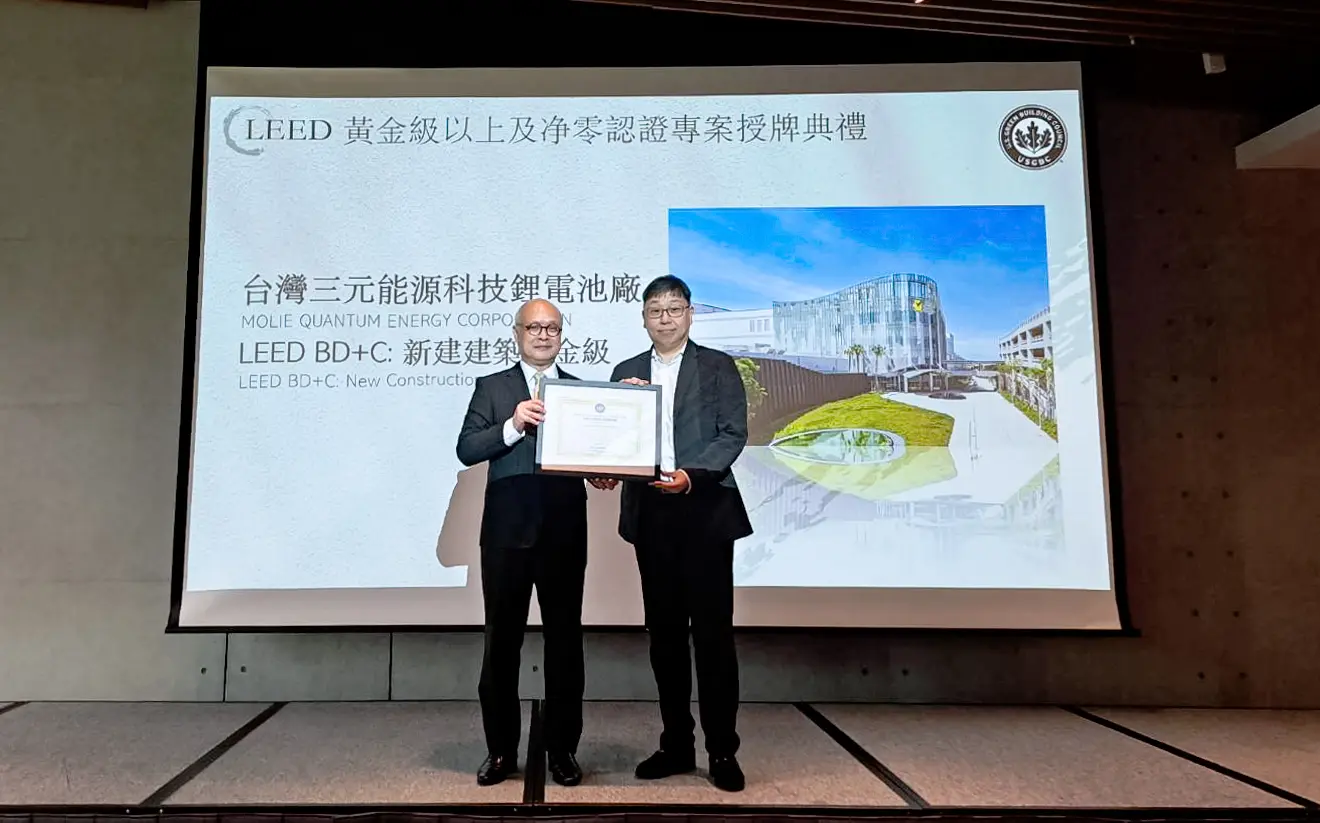TCC Group Holdings Releases Latest Sustainability Report Reveals Increase in Sustainable and Green Financing Inflows by NT$ 30.8 Billion
TCC Group Holdings Releases Latest Sustainability Report Reveals Increase in Sustainable and Green Financing Inflows by NT$ 30.8 Billion
2024.07.01
-
Copied

Recently renamed TCC Group Holdings, Taiwan Cement Corporation has released its latest sustainability report showcasing a diverse, resilient, innovative, and growth-oriented global strategy. The company spans five continents, 13 markets, 11 industries, and encompasses ten major decarbonization and green transition strategies that enhance TCC's green operational capacity. This year, TCC has significantly improved the transparency of its sustainability information, adopting internationally referenced “Avoided Emissions Assessments.” These assessments evaluate the decarbonization benefits of TCC's low-carbon construction materials, new energy products, and services on a global scale. By 2030, in collaboration with other industries, these efforts can help reduce 2.7 million tons of CO2e.
TCC has strengthened the connection between the ESG (Environmental, Social, and Governance) and financial metrics and released its new global cement and concrete business units net-zero pathway for 2050, developed based on the United Nations Integrity Matters, Science-based Targets Initiative (SBTi), ISO Net Zero Guidelines (IWA 42), and the Massachusetts Institute of Technology's En-ROADS net-zero simulator.
Furthermore, TCC has proactively aligned with international sustainability financial standards (IFRS S1 S2) and published its inaugural sustainability and climate-related financial report. The report focuses on three major transition plans of concern to investors: "Climate Action and Net-Zero Emissions," "Green Energy and Energy Storage," and "Sustainable Products and Services." According to the report, TCC's revenue from low-carbon cement and concrete products, waste treatment services, energy storage and charging services, and renewable energy trading reached NT$ 45.8 billion, accounting for 41.94% of its operational revenue in 2023. The sustainable and green financing cash inflows increased by NT$ 30.8 billion, providing a new framework for evaluating the company's internal operations and investment strategies and allowing stakeholders to comprehend better TCC's practical actions and benefits in its transition journey.

"Sustainability, for Taiwan Cement today, is a word but rather a continuous action," according to TCC Chairman Nelson An-ping Chang. TCC proactively addresses and responds to societal needs by setting trackable, verifiable, and responsible short-, mid-, and long-term goals for 2025, 2030, and 2050. In its latest sustainability report, TCC revealed that as the first cement company in the Greater China region to commit to and set targets align with SBT in 2020, it has successfully reduced its carbon emission intensity by 8.1% in 2023 compared to the base year of 2016. This achievement indicates that TCC is on track to meet its initial 2020-2025 SBT carbon reduction goals. Therefore, in 2024, TCC updated and submitted its next phase of targets to align with the Paris Agreement's 1.5-degree pathway, committing to achieve net zero by 2050 and participating in the SBTi target verification pilot program to periodically report and track progress. Additionally, TCC has voluntarily disclosed its methane emissions, which the UN considers to have a global warming potential 27.9 times higher than CO2 (according to IPCC data).
From the business of carbon reduction to aiding others in cutting carbon, the sustainability report links low-carbon construction materials, resource recycling, green energy, energy storage, charging services, and green logistics, among other industry value chains. These efforts align with the UN Sustainable Development Goals (SDGs) and proactively respond to the UN's Global Sustainable Development Report. TCC also has focused on just transition during its transformation. Within the company, TCC has established a Carbon Academy and Sustainable Learning Passport and extended it to its supply chain by offering carbon inventory and verification assistance. Externally, TCC DAKA Open Eco-Factory is a communication platform to promote industrial and urban sustainable development synergy. TCC and local teachers, students, and families have advanced the Hoping Carbon Reduction Parent-Child Bankbook Program, enhancing community carbon reduction knowledge and promoting lifestyle transformation. These efforts are featured as an iconic corporate case for SDG 13 in the Ministry of Education's SDG book and have become sustainability education materials for elementary and junior high school teachers. Additionally, TCC's internal Carbon Academy and sustainability courses have been extended from employees to suppliers. Furthermore, collaborating with community elementary schools to promote the Hoping Carbon Reduction Parent-Child Bankbook Program has become SDG sustainability action material recognized by the Ministry of Education.
TCC has incorporated nature actions into its net-zero strategy since 2016, including ecosystem restoration in mining areas, a coral rehabilitation project at Hoping EcoPort, and a rare global study on soil carbon sequestration and biodiversity. In 2024, TCC launched a forest carbon sink survey, becoming Taiwan's first large-scale construction materials company to join the Taskforce on Nature-related Financial Disclosures (TNFD) as an early adopter. Additionally, TCC has received recognition from Business for Nature, joining the It's Now for Nature campaign as the only global construction materials company. Furthermore, TCC collaborated with local governments in Hualien and Yilan to address the spread of the invasive species Leucaena leucocephala. Through co-processing in cement kilns, Leucaena is transformed into zero-carbon biomass fuel, contributing to both carbon reduction and the maintenance of ecosystem health. These nature-based solutions (NbS) aim to contribute to the global net positive impact (NPI) goal by 2030.
More Related Information
-
 2024.06.26Utilizing Environmental Education to Create Environmental Niches Heping Industrial Port of TCC Wins the National Environmental Education Award in the Corporate Category
2024.06.26Utilizing Environmental Education to Create Environmental Niches Heping Industrial Port of TCC Wins the National Environmental Education Award in the Corporate Category -
 2024.06.25Molie Quantum Energy Corporation Certified as Gold-Level Green Building by LEED and EEWH
2024.06.25Molie Quantum Energy Corporation Certified as Gold-Level Green Building by LEED and EEWH -
 2024.06.13TCC Group Holdings Announces Intention to File a Simplified Tender Offer for NHOA Shares, With a View to Delisting NHOA
2024.06.13TCC Group Holdings Announces Intention to File a Simplified Tender Offer for NHOA Shares, With a View to Delisting NHOA


